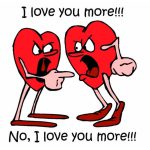Back from a magnificent holiday in Switzerland – what a beautiful country! – and Italy I am inspired to talk with you about love. I did that many times before, since it is an inexhaustible subject, but recently I discovered some new aspects. Let’s start with the Bible book Leviticus 19:18: Love your neighbour as yourself: I am the Lord.
This phrase has led to endless feelings of guilt, because what if you don’t feel this love, or doesn’t know how to develop this? Then one fails, exactly in the domain that seems to be the most important in life.
One of the problems is that this quote is probably wrongly translated. Meant is: Love your neighbor, who is like you. That sounds certainly more logical and true. Because in the more current translation your self love, that can be very limited, is the criterion for the love you can give, whereas clearly is referred to a higher standard: the love for and from the the Architect of the Universe: I am the Lord. To that love we are always capable, no matter of our own state of being, and no matter if we are believers of atheists.
But who is our neighbor? That surely is not everyone and anyone. To love that whole would be an abstraction, a cerebral concept, and that is not love. The neighbor is the one who enters our life. He/she has to give us something, or may need something from us. But anyway we have to deal with him or her. Only in that situation we can practice love, either by receiving or giving, or both. One can start with practicing open mindedness, mindfulness, and random acts of kindness. From there contact is possible. When, in contact, one succeeds in open listening and open speaking (without judging the other or wanting to influence him/her, or defending yourself) love will come into bloom. Sounds simple, is it not? It IS simple, but that is not to say that it is easy. But it is reachable for anyone who is determined to love one’s neighbor.
 Of course we don’t love our neighbor immediately after meeting him/her, or continuously. As Carl Jung wrote in a letter to Mrs. A. Schim van de Loeff: “The general idea of christian love for one’s neighbour is a pretense. In that way one can interact with everyone in a nice and detached way, because you are loving everyone after all. I possess no christian love, so why should I pretend to love you? I take you seriously, and that, in all honesty, is the only thing I can do.”
Of course we don’t love our neighbor immediately after meeting him/her, or continuously. As Carl Jung wrote in a letter to Mrs. A. Schim van de Loeff: “The general idea of christian love for one’s neighbour is a pretense. In that way one can interact with everyone in a nice and detached way, because you are loving everyone after all. I possess no christian love, so why should I pretend to love you? I take you seriously, and that, in all honesty, is the only thing I can do.”
Disclaimer: I apologize for mistakes in my English. Blogs are cursory – not stuff for correction by a native speaker

 Beauty as far as I am concerned is manifested love, as Plato already saw. Actually, it is the easiest way to reach Love. So let’s go for it: I need it, you need it, we all need it. It will make the world a better place.
Beauty as far as I am concerned is manifested love, as Plato already saw. Actually, it is the easiest way to reach Love. So let’s go for it: I need it, you need it, we all need it. It will make the world a better place.